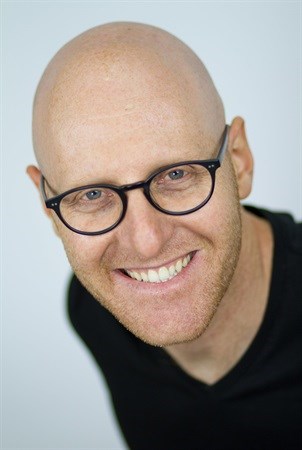
Related
Top stories






More news
















Logistics & Transport
Uganda plans new rail link to Tanzania for mineral export boost










“The book you can’t buy” (explained below) is the result of Spilkin’s fascination with the agency model and the modern workforce. Having researched 64 agencies, he soon realised how the education system has failed the freelancer and deceived the business owner and corporates in general.
With internet access and the myriad of online tools available, anyone in the service-based industry can become a freelancer and join the global gig economy. “Mothers looking for alternatives to going back to work after maternity leave, people reaching retirement age who still have lots to give back to society and those who just want independence and freedom to choose when they work and who they work for.
"In the United States and Europe, it’s vigorously calculated that by 2022 an estimated 50% of all information and service-based professionals will be self-employed and supporting the gig economy. Despite our local challenges of internet connectivity and tax restrictions, South Africans are following suite en masse across all information worker sectors," he adds.
The idea of 'clocking in' to an office is almost foreign now, and with remote working being easily achievable, working from a beach in Bali is well within reach.But the course isn’t just for freelancers or those thinking of making the ‘wild leap’ as he calls it, but also entrepreneurs and businesses that want to get a handle on this new workforce and how to leverage freelancers effectively and for efficiency and cost-saving.
“As a business owner, you should constantly be looking for ways to scale your business with the lowest fixed overhead exposure and risk, all while finding and using the best talent to deliver the highest quality product or service.” So Spilkin recommends using a freelance model rather than employing freelancers for overflow work.
Not only do you have access to the best freelancers in the world, but there are also cost-saving benefits to this, such as office space, hardware, software, leave and other HR functions, yes even coffee and toilet paper. And for the freelancer, there’s the opportunity to earn foreign currency by finding international clients and of course it’s an attractive proposition to the 9-5 grind or worse, unemployment.
Here, Spilkin goes into more detail about why he partnered with Vega, what this "workforce of the future" looks like and how best to prepare for it…
Well, unfortunately, it isn’t a relaxing Sunday read. It hurts. And it’s a lot. But my intention was not to torture freelancers with what they should be doing, but rather give them a hard-working mini-MBA. So once the 300-odd pages were written and designed and mocked up, I realised we were going to have to make it palatable and manageable. The step-by-step guides and best practices on how to run an independent professional business for digital and creative freelancers can now be taught and workshopped in a formal manner, allowing attendees to clearly define their business, its objectives and the practical measures that can be taken to achieve their individual goals.
Globally, designers and marketers are the ones pioneering the rapidly changing freelance movement and completely reshaping the future work environment, so partnering with a school that champions business and design, with a national footprint (campuses in Cape Town, Johannesburg, Durban and Pretoria), just made sense.

#TrueStory. You can only get a copy of the book when signing up at Vega for the course, which starts nationally in March this year. I figured that if you take your freelance business seriously (or your hunger to go freelance) you should get a formal education on the subject and gain a deep understanding of the subject matter. The course along with the book will give you the practical tools to grow your business, find new – and retain the right – clients and give you the kind of lifestyle you can’t attain working in a traditional job.
I’ve seen the impact it has had on people’s lives once they make that wild leap. Suddenly the option of working remotely, or working from a beach for six months becomes completely feasible. A better work-life balance, when you can decide on what work you want and when you want it, also makes creativity just flow more freely. On the other side of the coin, as a business owner, you should constantly be looking for ways to scale your business with the lowest fixed overhead exposure and risk, all while finding and using the best talent to deliver the highest quality product or service. You no longer have to ask, “Does anyone know a freelance writer?” Instead, you can ask who the best freelance writer in the world is and if they are available.
I’m fascinated by the agency model and what the workforce of the future is going to look like. I spent time in 64 agencies researching this book and it really opened my eyes to how badly our education system has failed the freelancer and blinkered the eyes of small business owners and corporates. SA needs more entrepreneurs – I hope this kickstarts lots of conversations. While consulting to my clients it became apparent how many of them are using freelancers, but aren’t leveraging them effectively. On the flip side, I had freelancers approach me for coaching in their business and I was shocked at the lack of business knowledge they had and how some very simple ideas could revolutionise their businesses. If you have a skill, WTF can help you.
You will learn the answer to what your annual radio licence fee is. No jokes. Years ago, when I was building a business, I had a huge decision moment about a buy-to-rent photocopying machine. It was R14,000 – an exorbitant investment at that time. The quote included an annual radio licence fee of R500. When I queried it, it was scrapped. I really liked the sales guy though and later hired him. He then told me that the R500 was their negotiation tool – if people queried it they would remove it as a goodwill gesture if not, it was money for nothing. So that’s a question I often ask my clients: What is your annual radio licence fee?
The movement has seen a massive uptake in the shared serviced office and hot desk space, which in turn is disrupting the property sector.
Freelancers will be recognised by banks and governments as a bona fide form of employment.
The slow consistent leak of talent from corporates will build into a deluge fuelling the freelance economy.
Lastly, I believe that large organisations will start building new models for their human resourcing and will learn to embrace and leverage the independent workforce for agility, profit and longevity.
Freelance is the future. Get informed. Make the change. Find your freedom.
For more, go to VegaSchool.com follow ‘Spillly’ on Twitter or Facebook, email him or visit his website.
